
views
Signs of a One-Sided Relationship
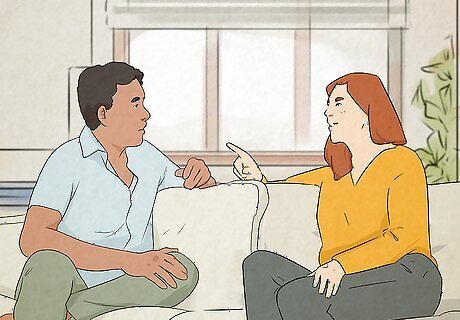
You initiate most conversations. A majority of the time, you’re the first one to call, text, or bring up a conversation topic with your partner. When you wait for your partner to start a conversation, you’re not sure when you’ll hear from them again because they aren’t consistent with how they communicate.

You put the most effort into the relationship. Instead of sharing responsibilities, you feel like you’re the one planning dates and taking the initiative to get together with your partner. Your partner may not recognize that there’s an issue, so it also can feel like you’re the only one bringing up important topics about building your future together.
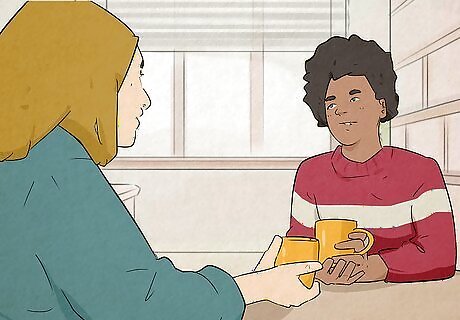
You don’t feel a deep connection with your partner. When you spend time with your partner, you feel unfulfilled because they aren’t there for you emotionally. You want to have a more intimate connection with your partner, but they seem closed off or unavailable, so it feels like you don’t get a lot of quality time bonding with them.

You second-guess your partner’s feelings and motives. Since your partner doesn’t communicate very much, it can feel like you never know how they’re truly feeling or why they’re acting distant. As you get further in the relationship, you may start feeling insecure because you question your partner’s mood or true intentions, so you aren’t sure where you stand with them.

You make more sacrifices than your partner. All relationships require a little bit of sacrifice from both sides. If your partner refuses or acts upset when they have to sacrifice something they want to do, you may feel like you have to give up more for them to be happy.

You avoid conflict with your partner. In an equal relationship, you should be able to discuss issues you have without arguments. Since your partner doesn’t talk about how they’re feeling in a one-sided relationship, you might be nervous to bring up any conflict since you don’t know how they’ll react. When an issue gets more serious, you either tiptoe around the subject or keep it to yourself instead.

You excuse your partner’s behavior. When your partner keeps to themselves or makes you upset, you chalk it up to them having a bad day or being in a mood rather than addressing the behavior. You may try to make other explanations about why they’re acting up and letting it happen instead of mentioning it to them.

You have more bad times than good with your partner. One-sided relationships can make your time together feel strained since you’re putting in most of the work. You’ll still have a few moments where you feel connected with your partner, but you have negative feelings towards a majority of the time you see each other. You may even feel lonely or disconnected when you aren’t together.

You hide how you’re really feeling. Partners in one-sided relationships aren’t as receptive to your emotions, so you may close yourself off and avoid sharing your thoughts. You feel like you can only talk about your mood and how the relationship affects you with someone else you trust instead of your partner.
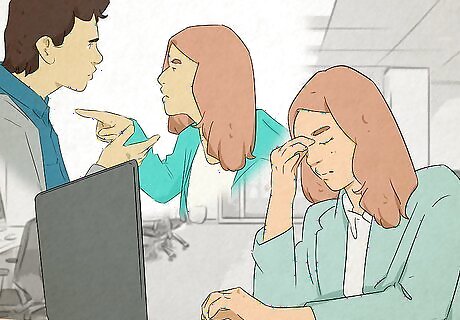
You can’t focus on other parts of your life. Since you’re worried about how your partner feels, it feels like they’re taking the energy that you’d normally put into other things you care about. It may seem like you’ve lost a sense of self because you aren’t spending time focusing on how you’re feeling and what you need.
What causes one-sided relationships?
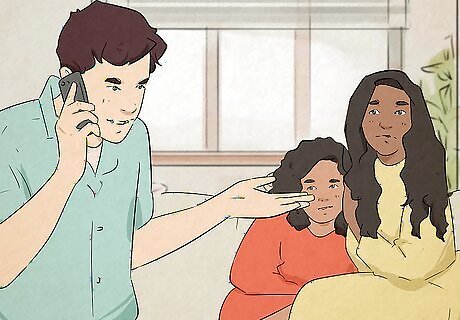
Family history can affect how someone views a relationship. If someone grew up with unhealthy, one-sided relationships, then it might be how they think a relationship is supposed to work. They might not see how they’re acting as a problem because that’s what they saw when they were raised.

Your partner may not know what you expect from them. You and your partner may have different expectations for your relationship. If you think your partner should act a certain way, they won’t know what you want unless you’ve communicated it to them before. This makes it seem like your relationship is one-sided because your partner will continue the same patterns until you bring them up.
How to Fix a One-Sided Relationship

Set aside a time when you can talk about the issue. It’s a lot easier to discuss how you’re feeling when you approach the conversation when you’re calm and free of distractions. Wait until you’re both in a good mood before bringing up your relationship so you can be more understanding of one another. “Hey, there’s been something weighing on me about our relationship. Do you have a little bit of time to talk right now?” If you or your partner is in a bad mood, have the discussion once you cool down.

State how the relationship makes you feel. Use “I” statements to talk about how you’re feeling without placing blame on your partner. Mention what upsets you and how it affects you so your partner fully understands what happens because of their behavior. “I feel lonely when I try to start a conversation and I don’t hear back from you at all.” “I feel upset when I give up things that I want to do for you but you don’t do the same for me.”

Communicate your expectations with your partner. Your partner can’t read your mind, so be clear about how you want them to act in the relationship. Tell your partner what you need from them so you can feel fulfilled and keep growing as a couple. Start with some smaller, easier expectations at first since it can be difficult to make big changes right away. “I want to feel like I can be open and honest about when I’m struggling without you getting upset.” “I’d like it if you could call or text me once or twice a day to check in so I don’t feel like I’m the one that’s reaching out each time.”
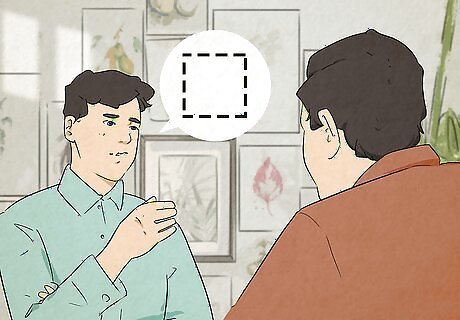
Enforce boundaries with your partner. Boundaries are really important for maintaining your sense of self in a relationship. If you normally spend your time worrying or taking care of your partner, take a step back and let them do things for themselves from time to time. While you can still do some things for your partner, practice saying “no” so you can focus on your wants and needs in the relationship. “If I feel like you’re disrespecting me, I will step out for a few minutes until you apologize.” “I will be here to support you on this project, but you need to take the steps to complete it yourself.”
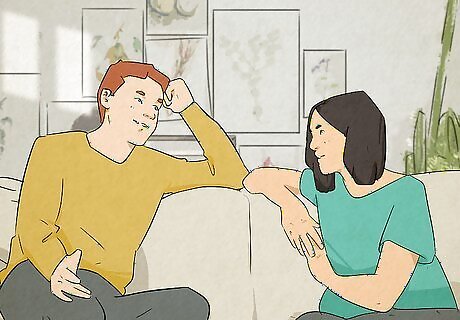
Listen to what your partner has to say. Your partner has their own point of view of the relationship, so ask them how they feel about what you’ve said. Give them your full attention without any interruptions so you can take in what they have to say. If they say something confusing, wait until they’re finished talking to ask for clarification. Show empathy towards them.
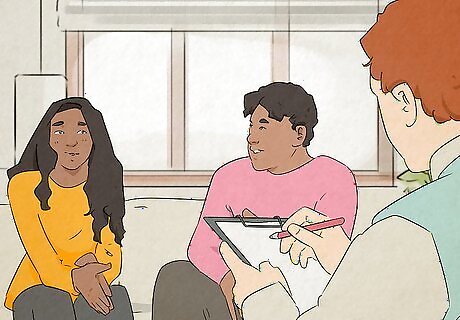
Discuss seeing a therapist for your relationship issues. Since the causes for one-sided relationships are usually deeper issues, it might be difficult to work through them on your own. A therapist can help you recognize how past behaviors affect your current relationship and what changes you can make. Mention therapy to your partner to see if they’re receptive to it and schedule an appointment when you can. You could say, “It seems like there’s a bigger issue here that we need to discuss. Is talking to a therapist something you’d be willing to do as a couple?”
When to Move On from the Relationship
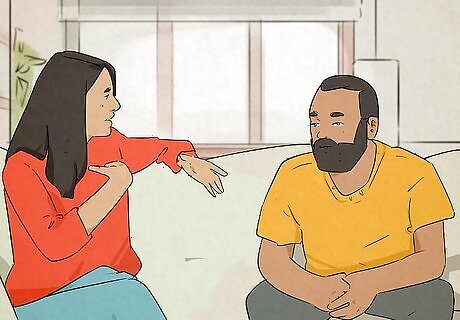
Set a loose deadline for your partner to make changes. It takes a while for someone to break their old habits and change how they act, so give them a few months or another reasonable amount of time to work towards them. When you set a deadline, follow through with it if you don’t see changes so your partner knows that you’re serious. “I’ve asked multiple times, so I need to see some changes in the next 3 months or we’ll need to rethink our future.”
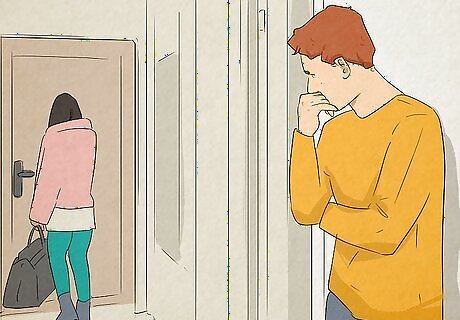
Consider moving on if your partner isn’t motivated to change. Even though you’ve asked your partner to make changes in the relationship, they still have to make that choice themselves. If your partner keeps following the same patterns and doesn’t put in the effort to make improvements, then they may not be as invested in the relationship or unable to change. Breaking old habits takes time, so if you see your partner making changes but not as quickly as you like, be patient and give them more time to keep improving. If you have to move on let them know politely that you are no longer interested in the relationship.




















Comments
0 comment